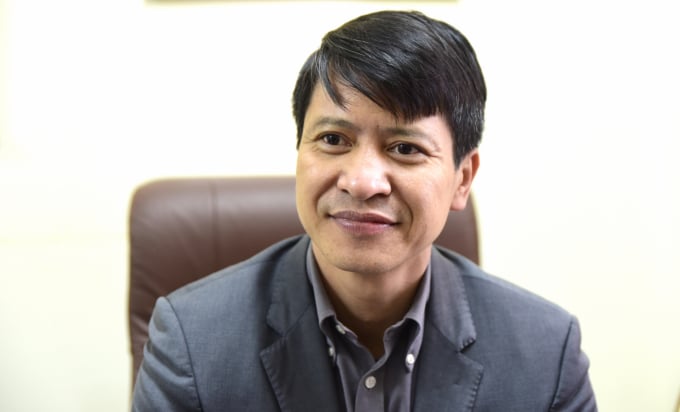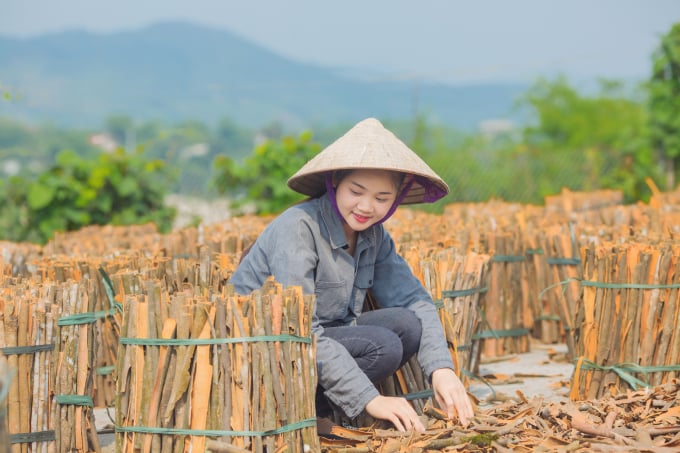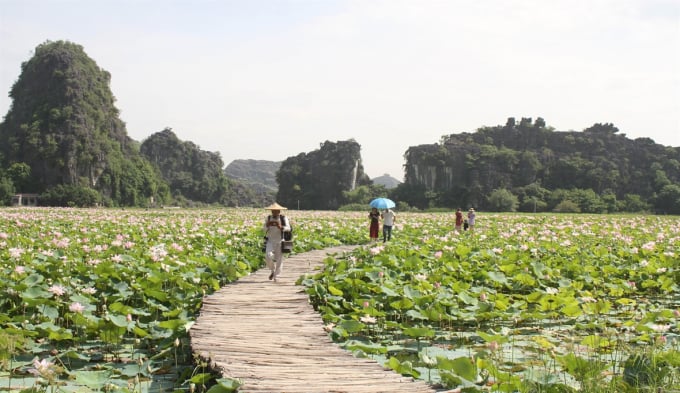June 21, 2025 | 02:15 GMT +7
June 21, 2025 | 02:15 GMT +7
Hotline: 0913.378.918
June 21, 2025 | 02:15 GMT +7
Hotline: 0913.378.918

Mr. Nguyen Minh Tien, Director, Chief of the Central Coordination Office for New Rural Development (Ministry of Agriculture and Rural Development). Photo: Minh Phuc.
Mr. Nguyen Minh Tien, Director, Chief of the Central Coordination Office for New Rural Development (Ministry of Agriculture and Rural Development), told Vietnam Agriculture News Sharing on the spotlights of the National Target Program on building new rural areas for the period 2021-2025: "We will emphasize core values such as raising people's incomes, promoting indigenous traditional cultural values, and protecting the environment."
Over the years, the National Target Program for rural development has seen several breakthroughs in terms of both quality and depth of achievements. The year 2021 will be difficult for the country's economic and social development. Throughout the five-month social distancing period from May to October, the program's execution faced several obstacles, including slow funding allocation from the 2021 Central capital budget.
However, the program's outcome has been acknowledged and cherished so far. By the end of December this year, the nation is expected to have 5,615 communes designated as new rural areas, accounting for 68.2 percent of the total, exceeding the central government's set purpose.
The number of communes satisfying the new advanced rural criteria and developing model new rural regions, in particular, has expanded dramatically (reaching 9 percent of the total number of new rural communes). The foregoing findings accurately represent the Party and State's position, which is that rural development is a continuous process. After attaining the new rural criteria, communes go to the improved and model rural regions.
The new rural construction initiative at the district level has also made great strides, with 40 district units meeting the threshold. The nation has 214 designated districts, accounting for 32% of the total.
Along with the quantitative outcome, numerous areas encouraged new rural construction in the direction of sufficiency and sustainability, particularly the fundamental criterion group such as people's income or environmental protection.
We established particular targets for the period 2021-2025 in the National Target Program on Rural Area Development, seeking to comply with the Resolution of the 13th Party Congress on "eco-agriculture, modern rural areas, and clever farmers."
These three terms were prominently used in the new rural program. It is evident in a variety of ways: To begin, for the first time, we have objectives at four levels, aiming for 15 provinces/cities, 50% of districts, and 80% of communes satisfying new rural criteria, including 65% of villages.
Second, we established a three-grade goal. In contrast to past phases, we have established a goal for new rural communes that satisfy the criteria; the objective will alter in the subsequent phase. As a result, the aim of 80% standard communes must include 40% advanced new rural communes that satisfy the standard and at least 10% model communes. As with the district level, we aim for 50% of districts to reach the standard and 20% to meet the new advanced and model rural standards.
Thus, we witness the inclusion and synthesis of new rural building targets at both the national and state levels, demonstrating the comprehensiveness and continuity of new rural development between 2021 and 2025.
Based on the overall and particular goals established, MARD states unequivocally that the Program's execution in the subsequent phase must be thorough, complete, and sustainable. One of the highlights is our shift away from agricultural production thinking and toward economic agriculture thinking, which is associated with multi-value integration.

The core values of the new countryside are built along three axes: raising people's incomes, promoting indigenous traditional cultural values, and protecting the environment. Photo: VM.
MARD and other ministries and departments proposed six thematic programs, including one on science and technology; one on the rural environment, food safety, and clean water; one on OCOP; one on digital transformation in new rural areas in conjunction with the development of smart new rural areas; one on rural tourism; and one on ensuring rural security, order, and peace.
The new rural construction program's emphasis will change in the next time to three axes: increasing people's earnings, strengthening indigenous traditional cultural values, and environmental conservation.
Among six theme projects, we place a premium on digital transformation, with a particular emphasis on smart new rural construction and rural tourist growth.
We can see plainly that digital transformation is an inevitable trend. We completed the program on digital transformation in new rural regions on this premise, focusing on three areas: digital governance, digital business, and digital society.
In terms of rural tourism, rural infrastructure has progressively improved and transportation has become more convenient. Local governments concentrate their efforts on planting trees and flowers and promoting indigenous values to enhance rural tourism, although the majority of them remain spontaneous.

The Japanese lotus field in Hoa Lu district, Ninh Binh province serves tourists to visit. Photo: Thuy Dung.
One of the major impediments today is a lack of methods and regulations to encourage rural tourist development, making it difficult to increase service quality while also ensuring sustainability. As is well known, the countryside is the nation's soul. Preserving and promoting such value benefits not just our age, but also future generations.
On that basis, the Prime Minister decided to give MARD primary responsibility for developing the draft rural tourism program and coordinating with the Ministry of Culture, Sports, and Tourism to present it to the Prime Minister in January 2022. We expect that the initiative will result in the establishment of a policy framework to promote rural tourism.
Thus, by integrating resources into the new rural program, it is possible to support tourist destinations, the development of OCOP and traditional products, cultural teams, performing arts, and indigenous people's culture, or the restoration of traditional craft villages to create rural services.
Translated by Linh Linh

(VAN) The waste of resources from agricultural by-products and the situation of counterfeit and poor quality goods in production causing losses of thousands of billions were pointed out by the National Assembly deputy.

(VAN) After 5 years of implementation, the CAI initiative has helped coffee growers change their farming practices, moving toward responsible agriculture that meets global export standards.

(VAN) The primary prerequisite for the comprehensive and robust integration of Vietnam's livestock sector into the global value chain is the establishment of a disease control system.

(VAN) The results of national programs are essential for establishing a contemporary livestock sector that is well-equipped to meet the demands of both domestic and international markets, with robust biosafety standards.

(VAN) The UNESCO Global Geopark revalidation of Non nuoc Cao Bang and the transition to a two-tier administrative model are presently undergoing a pivotal moment in Cao Bang, the northernmost province of Vietnam.
/2025/06/13/5330-2-004539_953.jpg)
(VAN) Changing policy mindset and removing investment barriers are urgent requirements to open up new development space for enterprises in the agricultural sector.

(VAN) The areas include the restoration of five million hectares of marine ecosystems.